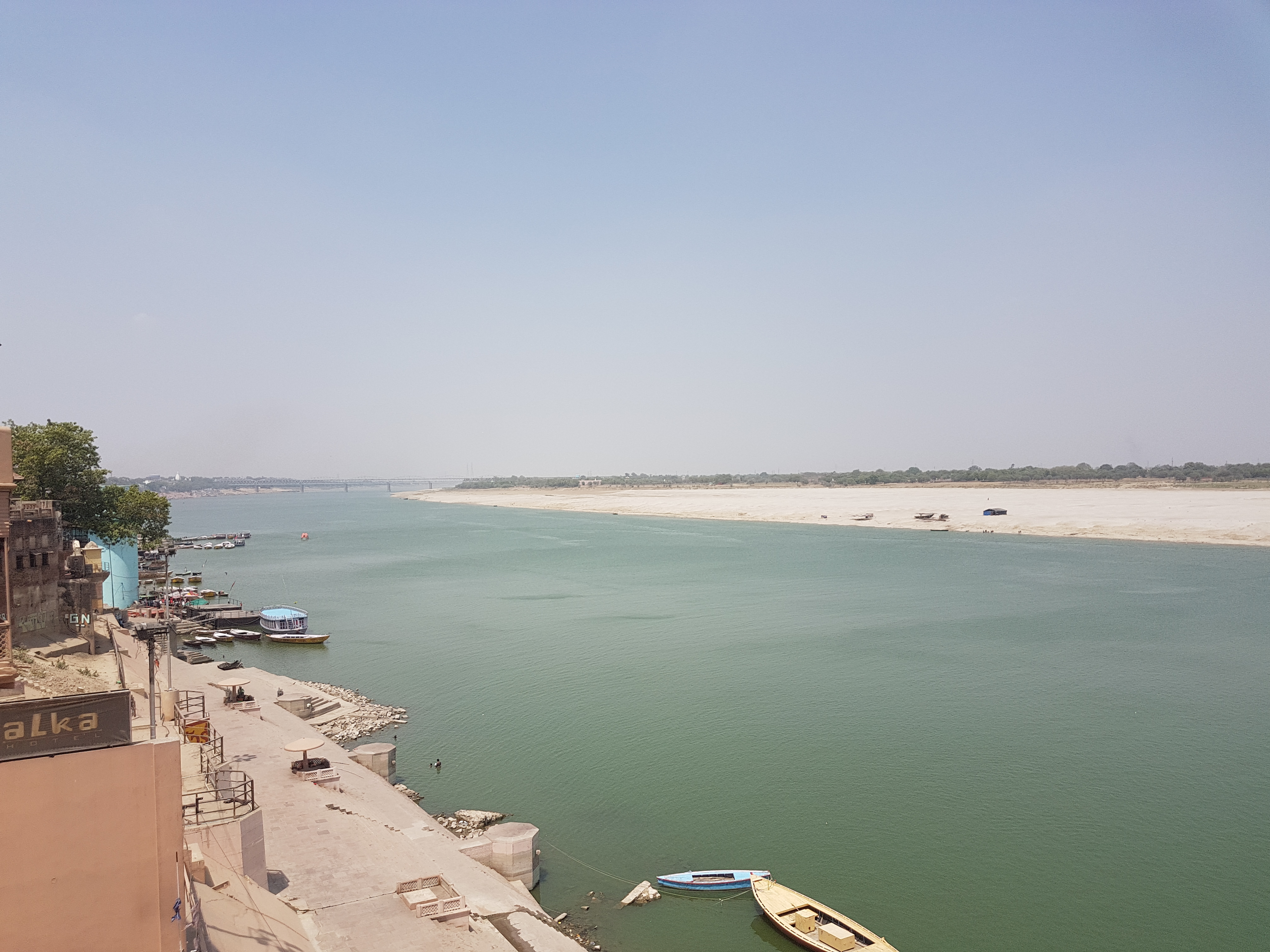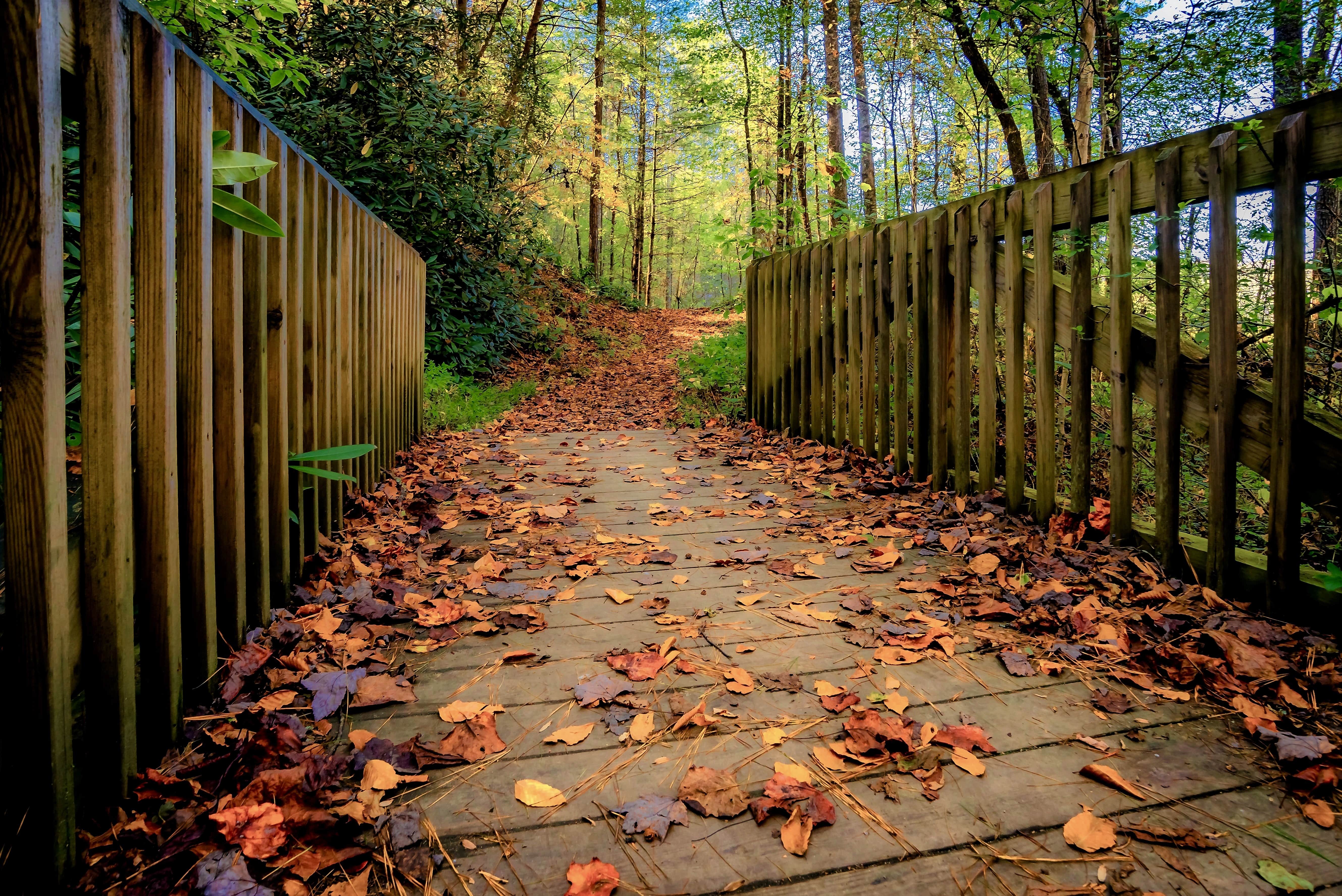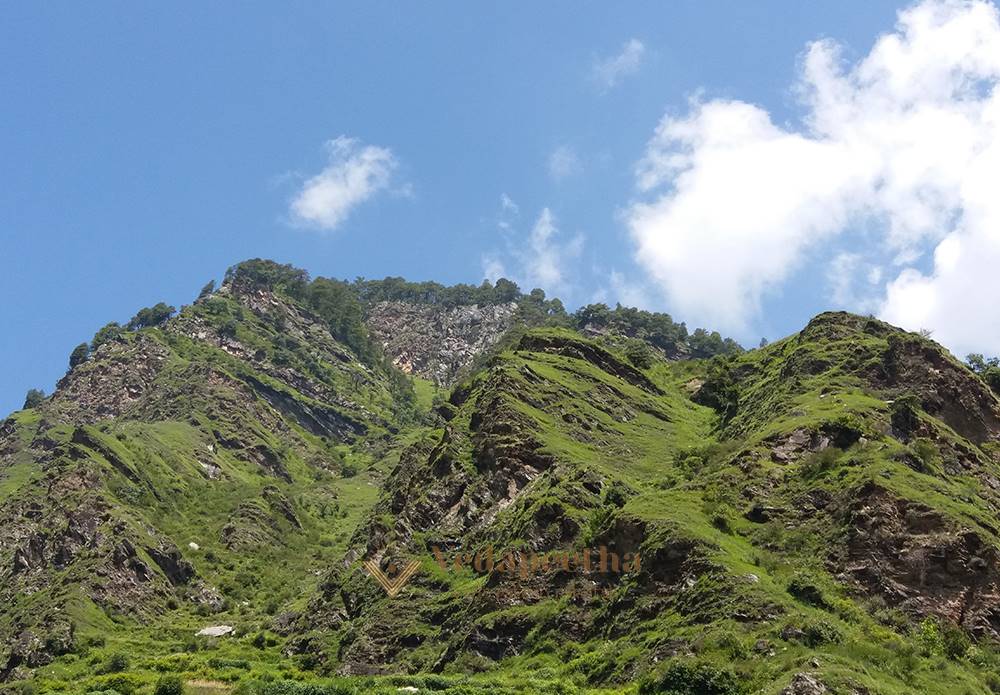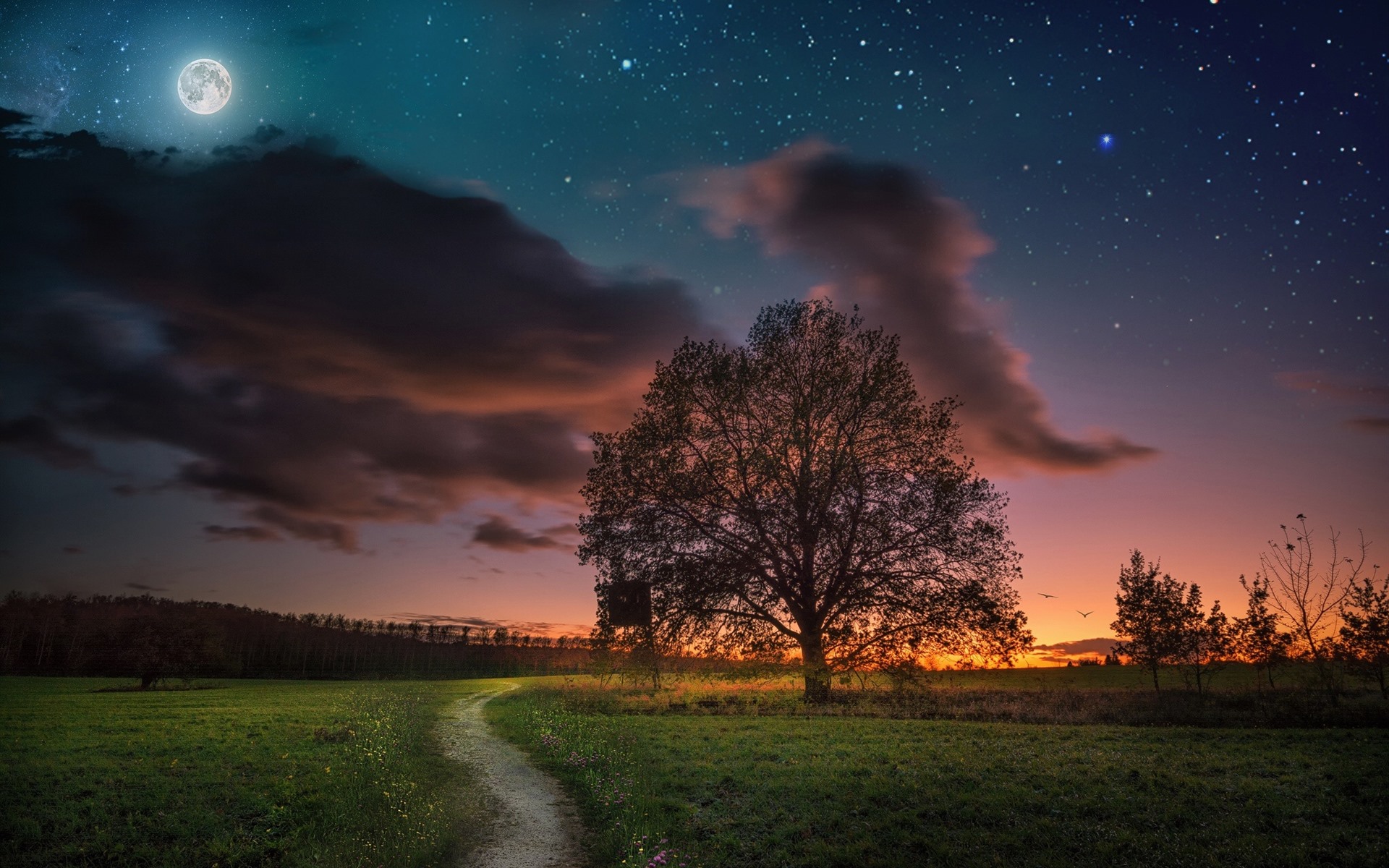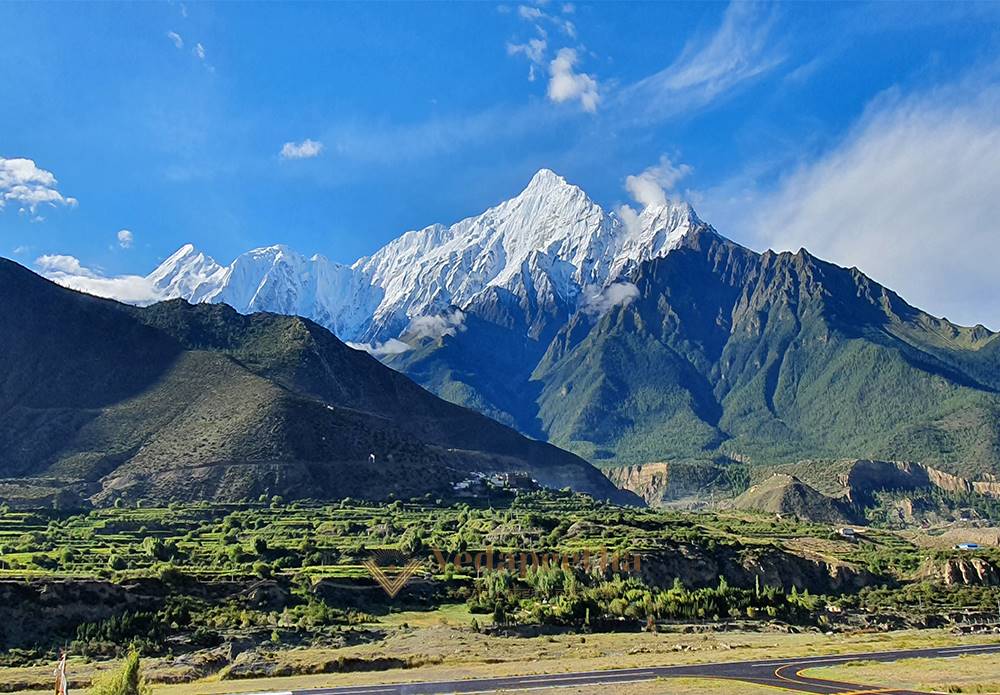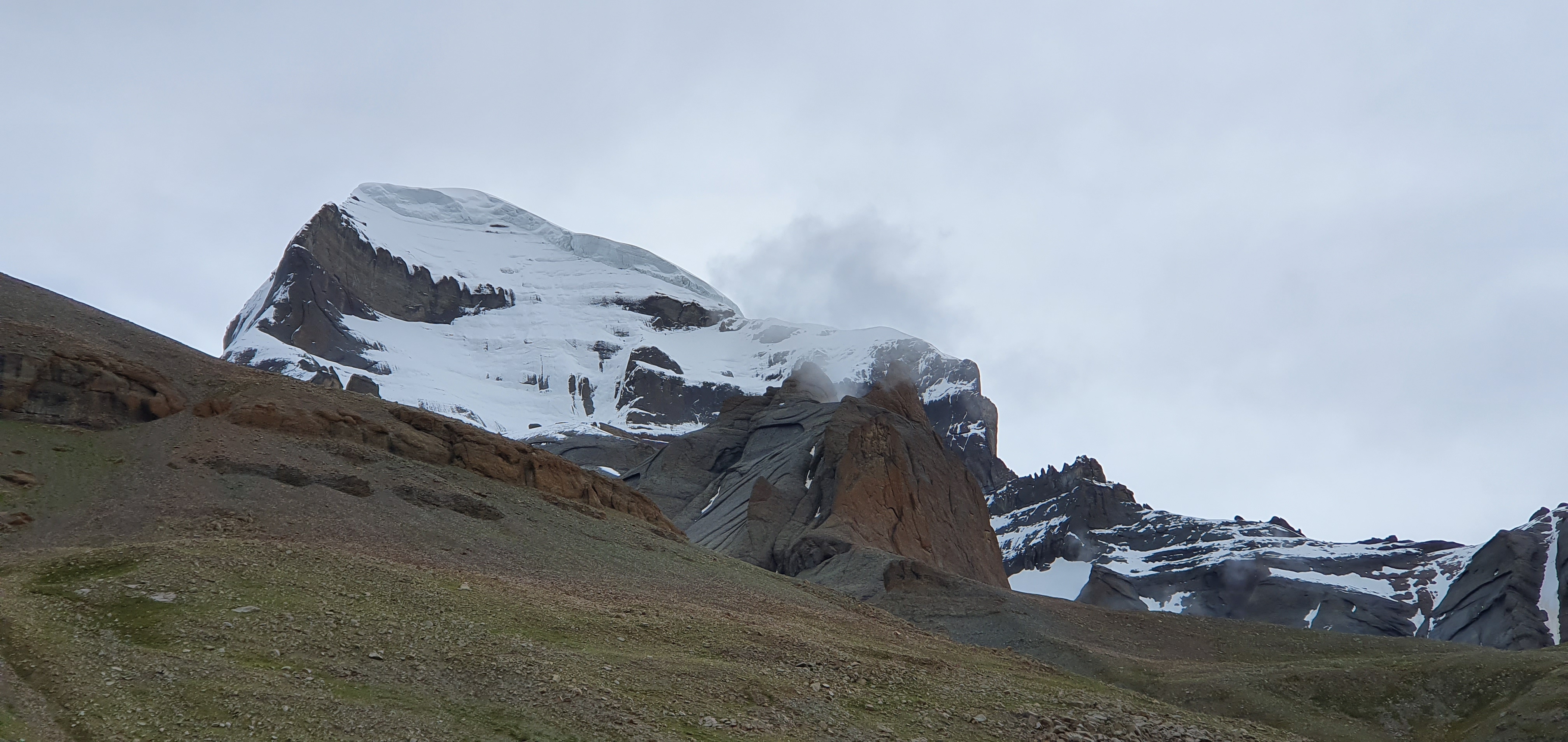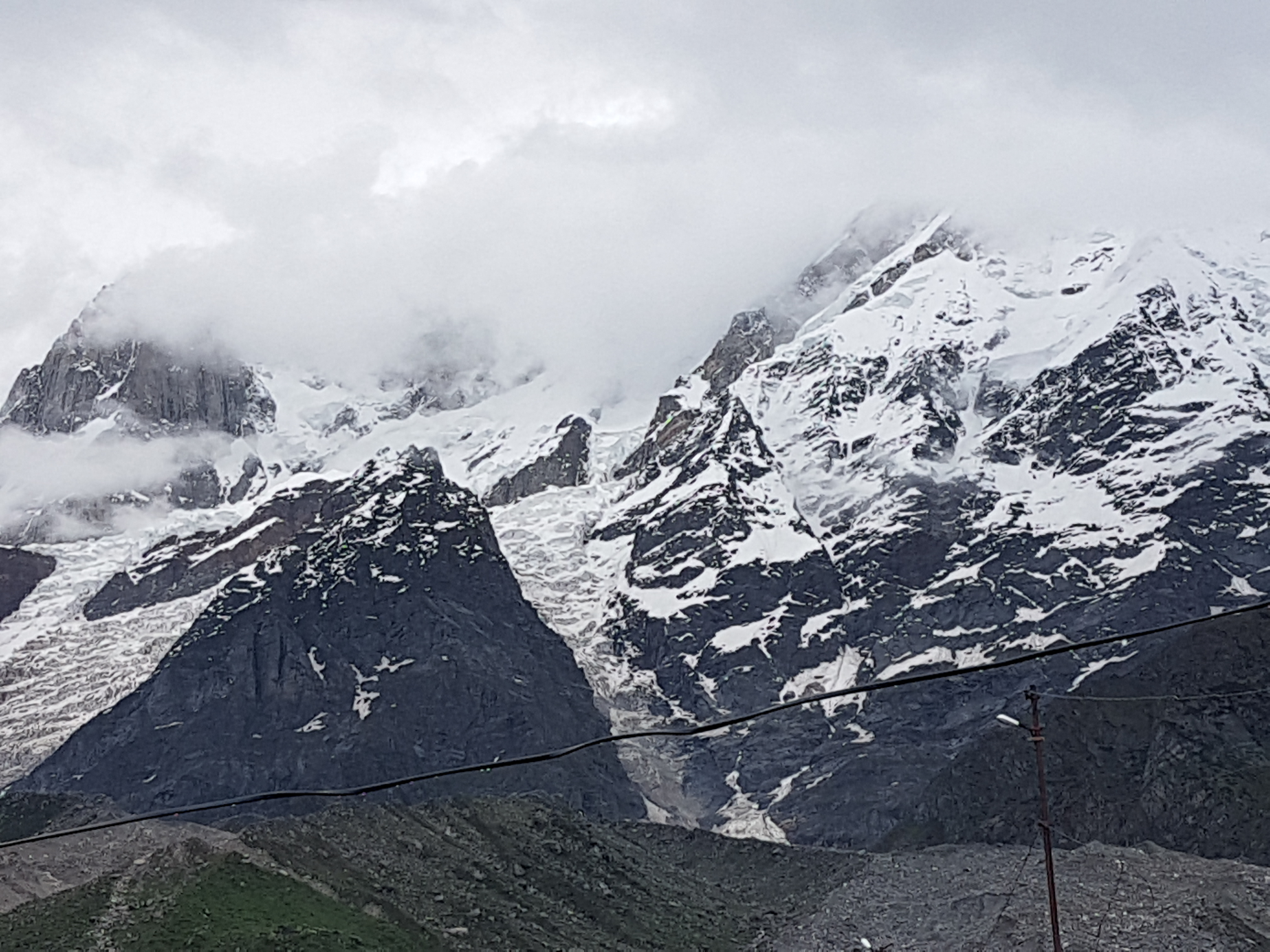Vedic Devatās
A Study of the Deities the Vedas
The hymns of Vedic texts are known as Mantras. The Ṛṣīs of the Vedic period can be seen praying to various deities for the cure of their diseases for getting children, for the livestock and for victory in battle etc. Similarly, the society of the Vedic period also worshipped various kinds of objects and also saw divinity in them too. The deities of Vedas are called as Devatās. The Vedas are mostly about prayers to please these Devatās by praising them, their glory, their deeds and the like. Most of the verses are prayers in seeking wealth, prosperity, protection from enemies, salvation and help in battle etc.
The Devatās of Vedic period are said to be living in three worlds viz, earth, Space and Heaven. There are thirty three main groups of deities in the Vedas. These deities are said to be located in three worlds each. The three worlds are the heaven, the atmosphere and the earth. Though there are various kinds of Devatās in Vedas, among them som of these deities, to say twenty are the most important. Sūrya, Mitrá, Savitā (Savitṛ), Pūṣan (Pusha) and Vishnu (Viṣṇu) are the Sun Gods. Váruṇa is the god of the sky. Aśvin’s and Uṣás’s are the gods of dawn. Indra, Rudra, Maruts, Pārjánya are the gods of rain and wind. The chief deities of Pṛthvī are Agni, Rudra, Váruṇa and Soma. Indra is the chief deity of the atmosphere. Agni, Soma, Vishnu (Viṣṇu) and Váruṇa are considered to be the helpers of Indra. The Sūrya is considered as the chief deity of the world.
Agni
As it is praised in about two hundred verses, it can be understood that Agni is more important in the Rig Veda. Earth is the seat of the fire gods. The Rig Veda states that 3339 gods worshipped fire[1]. The first verse of the first ukta of the Rig Veda begins by praising Agni[2]. Agni is worshipped in the Rig Veda mantras with many adjectives. Fire has a lot of adjectives like Ṛtvik, Hota, Purohita, Ratnadhata, Kavikruthu, Havyavāhana, Sahasrākṣa, Saptaraśmi, Hrudhapushta, Hrudalomo, Hrudhaprathika, Mantrajiva, Urjanopati, Apamnapath and Vishpathi in the Rig Veda. Agni is described in the Rig Veda as on the most important deities. In a mantra praising Agni every day, Agni, who is rich in work, prays that Agni will come quickly in the morning today and tomorrow[3]. It also prays for the importance of wealth and prosperity in another mantra[4].
Indra
Of the 1028 verses in the Rig Veda, about 250 are in praise of Indra. Indra is praised along with other deities also. Indra is also known as the god who sends rain on the earth to ward off evil spirits that block the clouds. Indra is also known as the god of rain and lighting and the god of war. One of Indras heroic deeds is the slaying of the demon Vrutra. Indra is also described as the drinker of Sōmarasa[5]. Indra can be seen addressing Rigvedic poets as human (R.V., 1.30.9) prominent among men[6] The hero among men, (R.V., 3.52.8) the greatest of men[7]. Powerful men[8] and the human chief (R.V.,8.66.5). Thus it is mentioned in many mantras that Indra works with them as a human being in addition to being a deity or devata[9].
Váruṇa
Váruṇa is a god older than Indra. Váruṇa’s weapon is a rope. In the Vedas, Váruṇa has been described as demonic, magical, heretical, relationship with Mitrá and rivalry with Indra. In many theories, Váruṇa is portrayed as the goddess who represents the sky, the night, the fertility, the moon and the Ocean[10]. Among the Vedic deities, Váruṇa is described by the word Asura in various parts of Rig Veda mantras[11].
Bhaga
As per Yāska , morning Sun is regarded as Bhaga[12]. An entire verse in the Rig Veda praises the Bhaga (R.V., 7.3.8). The name Bhaga is mentioned sixty times in the Rig Veda (R.V.,7.3.8). The Rig Veda describes him as the giver of wealth, the chief deity of rituals, the protector of the world and the god who raises cattle and horses (R.V., 7.3.2).
Pūṣan
Pūṣan is another Sun deity mentioned in the Rig Veda. Pūṣan is known for his ability and beauty to do things (R.V., 1.5.6). He is travelling in a chariot tied with sheep. All his weapons are made of gold and eyes are described as radiant (R.V., 1.1.36). He is regarded as the god for all movable and immovable things (R.V., 6.5.9). It is believed that all the movements of human beings are controlled by Pūṣan. It is believed that Pūṣan has a lot of intelligence and compassion. Pūṣan is described as the leader of all rituals the giver of wealth to the world and the giver of peace to human beings[13].
Maruts
Maruts are deities that move together. Those who are close to Indra, they stand as helpers when Indra fights. Rudra is another deity who stands close to the maruts like Indra. It is mentioned in many parts of the Rig Veda that Maruts are standing in groups. It can be seen that the maruts were brothers and there was equally between them (R.V., 5.59.6). They were equal in all respects (R.V., 5.60.5).
Rudra
Unlike other Vedic deities, Rudra appears in a completely secular form. In the Rig Veda, Rudra has two personalities. He is fierce (R.V., 11.33.9). The enemy is as destructive as a lion. He is invincible by force (R.V., 11.33.3). Rudra has been described as a pig (R.V., 1.114.5) and a demon. Reference to Rudras deadly arrows can be seen in some places (R.V., 11.33.10). In addition to his rough face, he also has the face of a benefactor, The Rig Veda also depicts the mangala form of Rudra a deity who showers blessings on the devotees, who heals people and animals, who makes the rural people rich and healthy and who is a healer and physician[14].
Mitrá
In the Rig Veda,the god Mitrá is said to be not only independent but also associated with Váruṇa. Mitrá is described in full in a verse[15]. Mitrá likes to be able to hold people together and live in harmony without enmity. Friendship is an important quality of a Mitrá. Mitrá likes to be on friendly terms with people[16]. The Rig Veda people believe that the Mitrá saves human beings from all dangers[17].
Savitā
Savitā is the golden deity of the Rig Veda. In the Rig Veda we can see that he raises his golden hands and blesses all living beings. His chariot is horses with white feet. Words like Hiranyaksha, Hiranyapani, Suvarnanetra, Svarnapada, Svarnajihva, Pranadhatha, Vicharshani and Sunetra are adjectives given to Savitā by her worshippers. The Mantra I praise that jyothi of Savitā who awakens thought and action is a prayer song that has been heard loudly in India for centuries[18]. The Rig Vedic poet also says that no one can say the glory of Savitā shines in the golden chariot[19] illuminating the whole world and that he dwells in the sky[20] . Every night praising man for saving him from powerful demons no one can glorify Savitā[21].
*********
Article Prepared by:
Smt. Alphonsa Chacko
Assistant Professor,
Department Of Sanskrit,
New Man College,
Thodupuzha, Idukki,
Kerala, India.
The hymns of Vedic texts are known as Mantras. The Ṛṣīs of the Vedic period can be seen praying to various deities for the cure of their diseases for getting children, for the livestock and for victory in battle etc. Similarly, the society of the Vedic period also worshipped various kinds of objects and also saw divinity in them too. The deities of Vedas are called as Devatās. The Vedas are mostly about prayers to please these Devatās by praising them, their glory, their deeds and the like. Most of the verses are prayers in seeking wealth, prosperity, protection from enemies, salvation and help in battle etc.
The Devatās of Vedic period are said to be living in three worlds viz, earth, Space and Heaven. There are thirty three main groups of deities in the Vedas. These deities are said to be located in three worlds each. The three worlds are the heaven, the atmosphere and the earth. Though there are various kinds of Devatās in Vedas, among them som of these deities, to say twenty are the most important. Sūrya, Mitrá, Savitā (Savitṛ), Pūṣan (Pusha) and Vishnu (Viṣṇu) are the Sun Gods. Váruṇa is the god of the sky. Aśvin’s and Uṣás’s are the gods of dawn. Indra, Rudra, Maruts, Pārjánya are the gods of rain and wind. The chief deities of Pṛthvī are Agni, Rudra, Váruṇa and Soma. Indra is the chief deity of the atmosphere. Agni, Soma, Vishnu (Viṣṇu) and Váruṇa are considered to be the helpers of Indra. The Sūrya is considered as the chief deity of the world.
Agni
As it is praised in about two hundred verses, it can be understood that Agni is more important in the Rig Veda. Earth is the seat of the fire gods. The Rig Veda states that 3339 gods worshipped fire[1]. The first verse of the first ukta of the Rig Veda begins by praising Agni[2]. Agni is worshipped in the Rig Veda mantras with many adjectives. Fire has a lot of adjectives like Ṛtvik, Hota, Purohita, Ratnadhata, Kavikruthu, Havyavāhana, Sahasrākṣa, Saptaraśmi, Hrudhapushta, Hrudalomo, Hrudhaprathika, Mantrajiva, Urjanopati, Apamnapath and Vishpathi in the Rig Veda. Agni is described in the Rig Veda as on the most important deities. In a mantra praising Agni every day, Agni, who is rich in work, prays that Agni will come quickly in the morning today and tomorrow[3]. It also prays for the importance of wealth and prosperity in another mantra[4].
Indra
Of the 1028 verses in the Rig Veda, about 250 are in praise of Indra. Indra is praised along with other deities also. Indra is also known as the god who sends rain on the earth to ward off evil spirits that block the clouds. Indra is also known as the god of rain and lighting and the god of war. One of Indras heroic deeds is the slaying of the demon Vrutra. Indra is also described as the drinker of Sōmarasa[5]. Indra can be seen addressing Rigvedic poets as human (R.V., 1.30.9) prominent among men[6] The hero among men, (R.V., 3.52.8) the greatest of men[7]. Powerful men[8] and the human chief (R.V.,8.66.5). Thus it is mentioned in many mantras that Indra works with them as a human being in addition to being a deity or devata[9].
Váruṇa
Váruṇa is a god older than Indra. Váruṇa’s weapon is a rope. In the Vedas, Váruṇa has been described as demonic, magical, heretical, relationship with Mitrá and rivalry with Indra. In many theories, Váruṇa is portrayed as the goddess who represents the sky, the night, the fertility, the moon and the Ocean[10]. Among the Vedic deities, Váruṇa is described by the word Asura in various parts of Rig Veda mantras[11].
Bhaga
As per Yāska , morning Sun is regarded as Bhaga[12]. An entire verse in the Rig Veda praises the Bhaga (R.V., 7.3.8). The name Bhaga is mentioned sixty times in the Rig Veda (R.V.,7.3.8). The Rig Veda describes him as the giver of wealth, the chief deity of rituals, the protector of the world and the god who raises cattle and horses (R.V., 7.3.2).
Pūṣan
Pūṣan is another Sun deity mentioned in the Rig Veda. Pūṣan is known for his ability and beauty to do things (R.V., 1.5.6). He is travelling in a chariot tied with sheep. All his weapons are made of gold and eyes are described as radiant (R.V., 1.1.36). He is regarded as the god for all movable and immovable things (R.V., 6.5.9). It is believed that all the movements of human beings are controlled by Pūṣan. It is believed that Pūṣan has a lot of intelligence and compassion. Pūṣan is described as the leader of all rituals the giver of wealth to the world and the giver of peace to human beings[13].
Maruts
Maruts are deities that move together. Those who are close to Indra, they stand as helpers when Indra fights. Rudra is another deity who stands close to the maruts like Indra. It is mentioned in many parts of the Rig Veda that Maruts are standing in groups. It can be seen that the maruts were brothers and there was equally between them (R.V., 5.59.6). They were equal in all respects (R.V., 5.60.5).
Rudra
Unlike other Vedic deities, Rudra appears in a completely secular form. In the Rig Veda, Rudra has two personalities. He is fierce (R.V., 11.33.9). The enemy is as destructive as a lion. He is invincible by force (R.V., 11.33.3). Rudra has been described as a pig (R.V., 1.114.5) and a demon. Reference to Rudras deadly arrows can be seen in some places (R.V., 11.33.10). In addition to his rough face, he also has the face of a benefactor, The Rig Veda also depicts the mangala form of Rudra a deity who showers blessings on the devotees, who heals people and animals, who makes the rural people rich and healthy and who is a healer and physician[14].
Mitrá
In the Rig Veda,the god Mitrá is said to be not only independent but also associated with Váruṇa. Mitrá is described in full in a verse[15]. Mitrá likes to be able to hold people together and live in harmony without enmity. Friendship is an important quality of a Mitrá. Mitrá likes to be on friendly terms with people[16]. The Rig Veda people believe that the Mitrá saves human beings from all dangers[17].
Savitā
Savitā is the golden deity of the Rig Veda. In the Rig Veda we can see that he raises his golden hands and blesses all living beings. His chariot is horses with white feet. Words like Hiranyaksha, Hiranyapani, Suvarnanetra, Svarnapada, Svarnajihva, Pranadhatha, Vicharshani and Sunetra are adjectives given to Savitā by her worshippers. The Mantra I praise that jyothi of Savitā who awakens thought and action is a prayer song that has been heard loudly in India for centuries[18]. The Rig Vedic poet also says that no one can say the glory of Savitā shines in the golden chariot[19] illuminating the whole world and that he dwells in the sky[20] . Every night praising man for saving him from powerful demons no one can glorify Savitā[21].
*********
Article Prepared by:
Smt. Alphonsa Chacko
Assistant Professor,
Department Of Sanskrit,
New Man College,
Thodupuzha, Idukki,
Kerala, India.
Subsribe our package to Read Full
Subscribe Now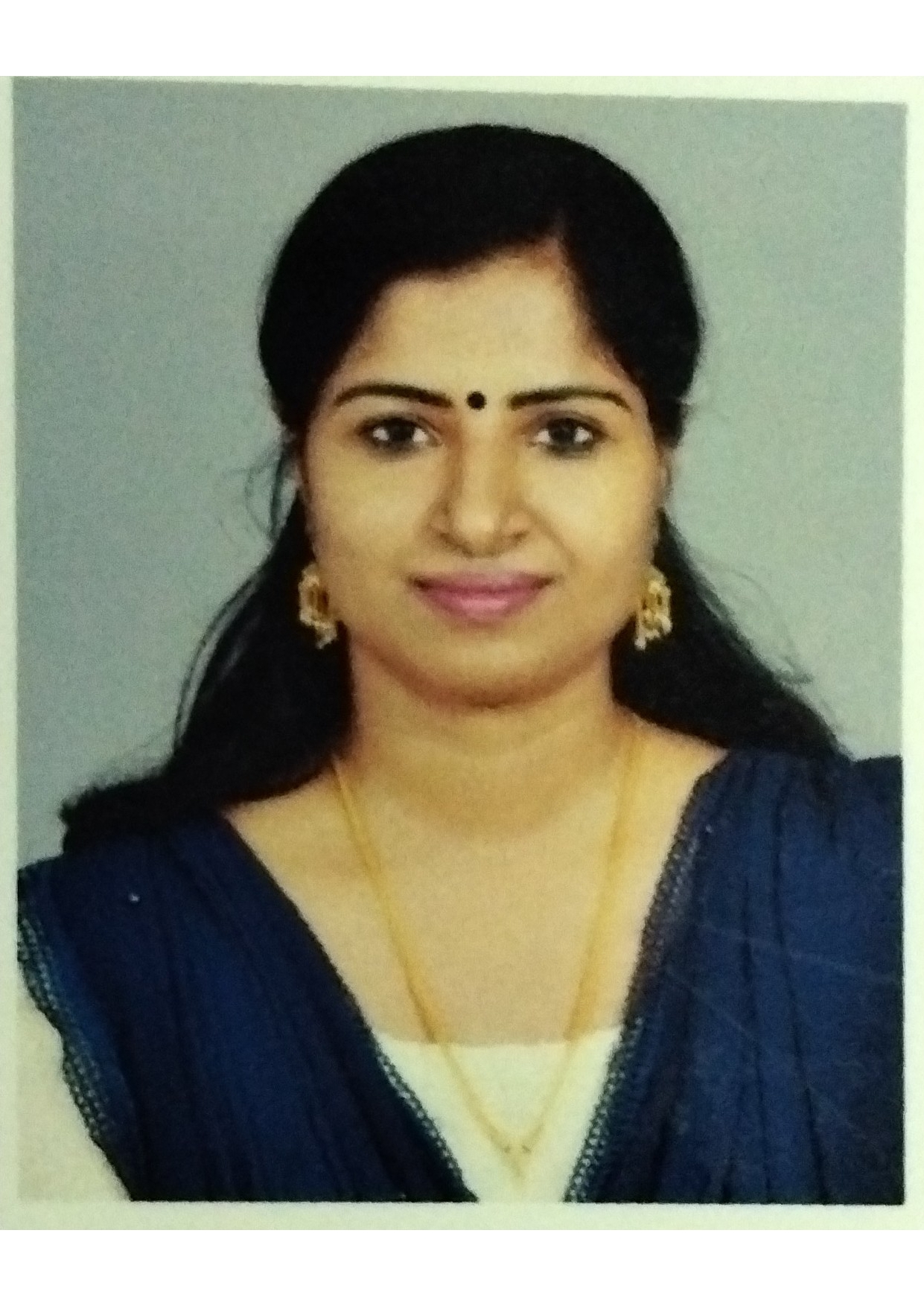
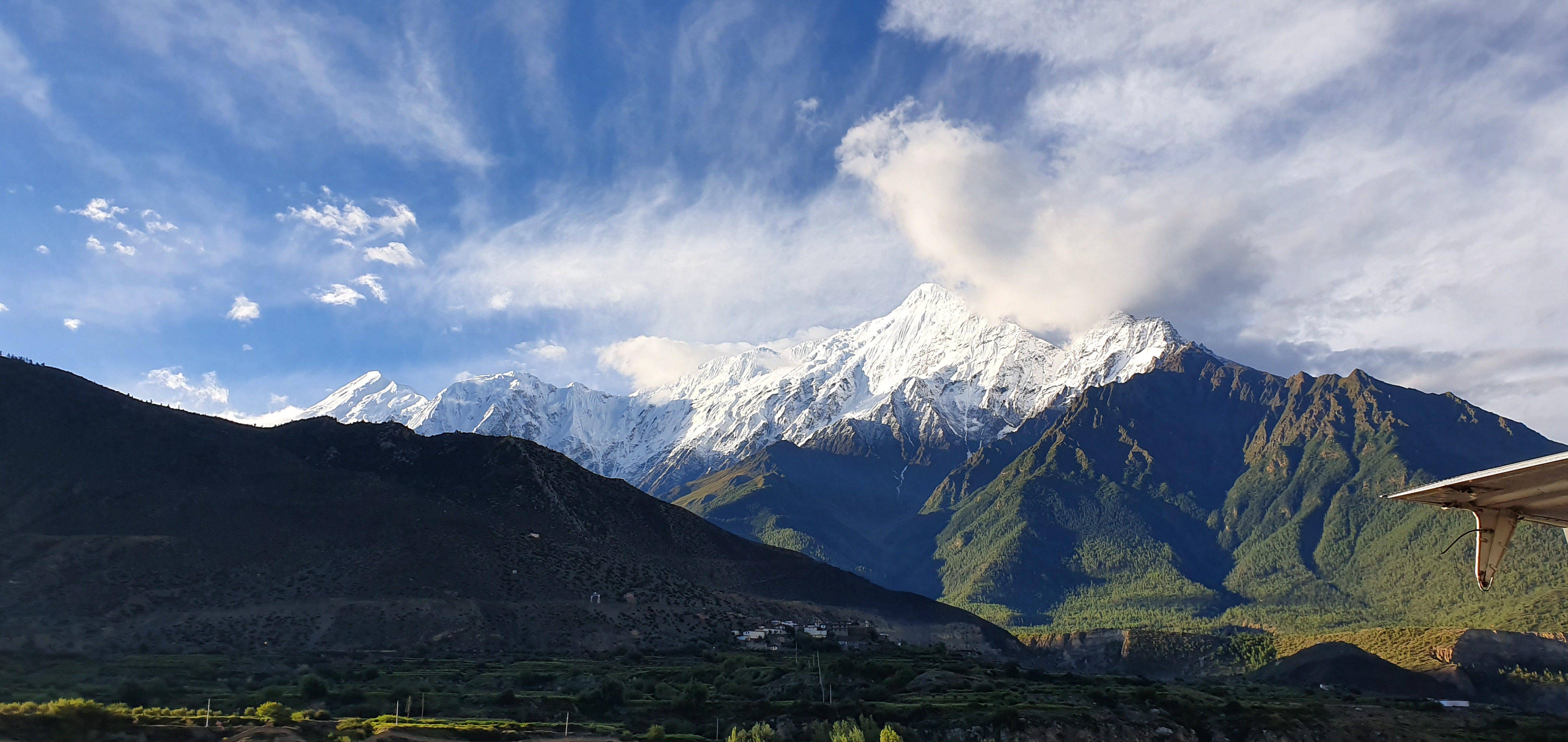
?>resources/frontend/assets/images/4.jpg)
.jpg)
